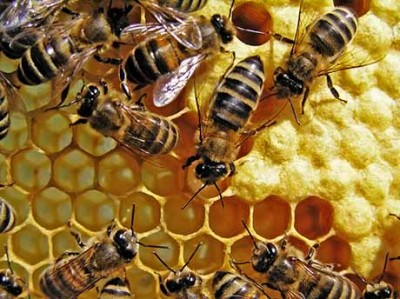New Report Issues Dire Warning about Global Decline in Pollinators

Pollinators worldwide, from bees and butterflies to beetles and bats, are facing a grim state of affairs.
Factors such climate change and land use changes are driving many pollinator species—including 16 percent of vertebrate pollinators—towards extinction. For invertebrate pollinators like bees and butterflies, over 40 percent of species may be be threatened locally, a new report shows.
And this all adds up to very bad news for humans, the report details, as it poses risks to the global food supply.
The assessment released Friday is from the four-year-old Intergovernmental Science-Policy Platform on Biodiversity and Ecosystem Services (IPBES), a UN-formed body similar to the Intergovernmental Panel on Climate Change (IPCC). IPBES came to its first ever analysis based on a body of existing scientific studies.
“Pollinators are important contributors to world food production and nutritional security,” said Vera Lucia Imperatriz-Fonseca, co-chair of the assessment and senior professor at the University of São Paulo. “Their health is directly linked to our own well-being.”
Describing their critical role, IPBES says that three-quarters of the “leading types of global food crops” rely at least in part on pollination by some of the 20,000 species of wild bees or other pollinators. In terms of monetary impact, that translates to as much as $577 billion worth of annual global food production.
“Without pollinators, many of us would no longer be able to enjoy coffee, chocolate and apples, among many other foods that are part of our daily lives,” said Simon Potts, Ph.D., the other co-chair and professor of biodiversity and Ecosystem Services at the University of Reading in the UK.
In addition to climate change and land use changes, the report also cites the decline of practices based on indigenous and local knowledge and insecticides like neonicotinoids as contributing to pollinators’ decline.
Among the strategies to protect pollinators suggest entail promoting sustainable agriculture, including reducing exposure to pesticides and bumping up diversity in pollinator habitats.
As far as a real impact from the group’s report, Dave Goulson, author, bumblebee expert, and professor of biology at the University of Sussex, is skeptical.
“I would question whether any practical on-the-ground action to help pollinators will happen as a result of this document. We are in the midst of the sixth global mass-extinction event, and we sit around spending thousands of hours writing documents about biodiversity, but we do not take action to address the fundamental issues that are causing this ecological catastrophe,”
Nature reports him as saying.

